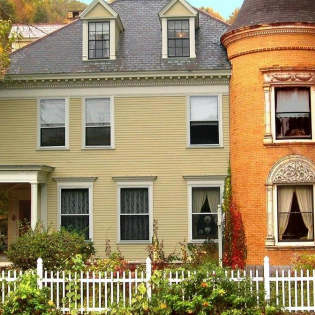A fix-and-flip is a process by which you purchase a home or property, renovate and fix it up, and then sell it for a higher cost than you invested in it to make your money back. Ideally you would be able to sell it for much more than you paid for it. But it isn’t always as simple as it seems, and there is always the possibility that the investment will lead to disaster. Even if you aren’t a first time home-buyer, you may be wondering how to go about investing in a fix and flip property. This post will go over some of the main points to give you an idea of what to expect.
Find a Property Worth Investing In
The first step is to find a property worth investing in. There are several ways to locate a flip property. One way is to contact local Realtors who can locate below-market properties. These are property that you can purchase significantly below market value. Another way to locate a flip is to go direct to a property owner who owns a property that you can purchase at a low price. Properties you may be able to buy at very low prices include, those that need a lot of repairs, fire damaged properties, hoarder homes, deferred maintenance properties, where the homeowners never made repairs or improvements to the property. As Baby Boomers sell their homes, thousands of properties are becoming available to buy as potential flip investments.
Another source of flip properties are through auction websites or buying at foreclosure or trustee sales. A great source for flip properties is through wholesalers. Wholesalers are investors who have located a flip property and instead of fixing up the property, mark up the sales price slightly and sell the property to you.
Find a Private Money Lender
Before you purchase a flipper, you are going to need money. Not everyone has a pile of cash laying around, but they still want to be able to invest in a property. So what are your options? Short of asking a friend for money, you could apply for a regular loan with a bank or the government, but they often take months to go through, and are dependent on your credit score and background. An easier option is a private “hard money” lender. A private money lender is a lender that can provide you with a privately funded mortgage, which is often the preferred option for gaining the funds to invest in a house. The interest rates for private money loans are higher than traditional mortgages, but the ease of obtaining a private money loan is fairly easy and the paperwork and qualifying are streamlined. Private money lenders care mostly about the property, your experience and receiving a high rate of return. Private money lenders are not as particular about credit, income or the condition of the property. Private lenders care about equity and that they will receive their principal and interest after the property has been repaired and sold.
Apply for Hard Money Loan
Now that you have found your property, and you have found a money lenders, you can apply for a hard money loan from a private money lender. A hard money loan is a term from the 1950s, which is used to mean a type of loan based on property assets (such as house you want to fix and flip) rather than your credit score. This means that you are more likely to be able to get one of these types of loans, even if you have less than stellar credit. A hard money loan is more concerned with the property in question, and its potential value, rather than the borrower’s background credit. Unlike regular mortgage loan, a hard money loan has a relatively quick turnaround, so you won’t be forced to wait for months while a bank decides whether to lend you the money; you can get one in less than fifteen days. A hard money loan does have a higher interest rate, but since the goal is to flip the house quickly, you can avoid paying too much interest by repaying the loan as soon as the house sells.
Renovate and Resell
Now that you’ve gotten the loan, you can begin the fun part. The time between the purchase of the house and your future sale should be relatively quick, often less than a year. Whether you are renovating during that time, or waiting until the time is right to sell, you should keep close watch of the property values on the market. The goal is to resell your house before you have to pay too much interest on the loan, in order to make the maximum profit.
This is by no means an exhaustive guide, but hopefully this overview of how to fix and flip a house has helped get you started on the right path. Look up your local private money lenders for real estate to find the best option to help you get started on your fix-and-flip strategy.

